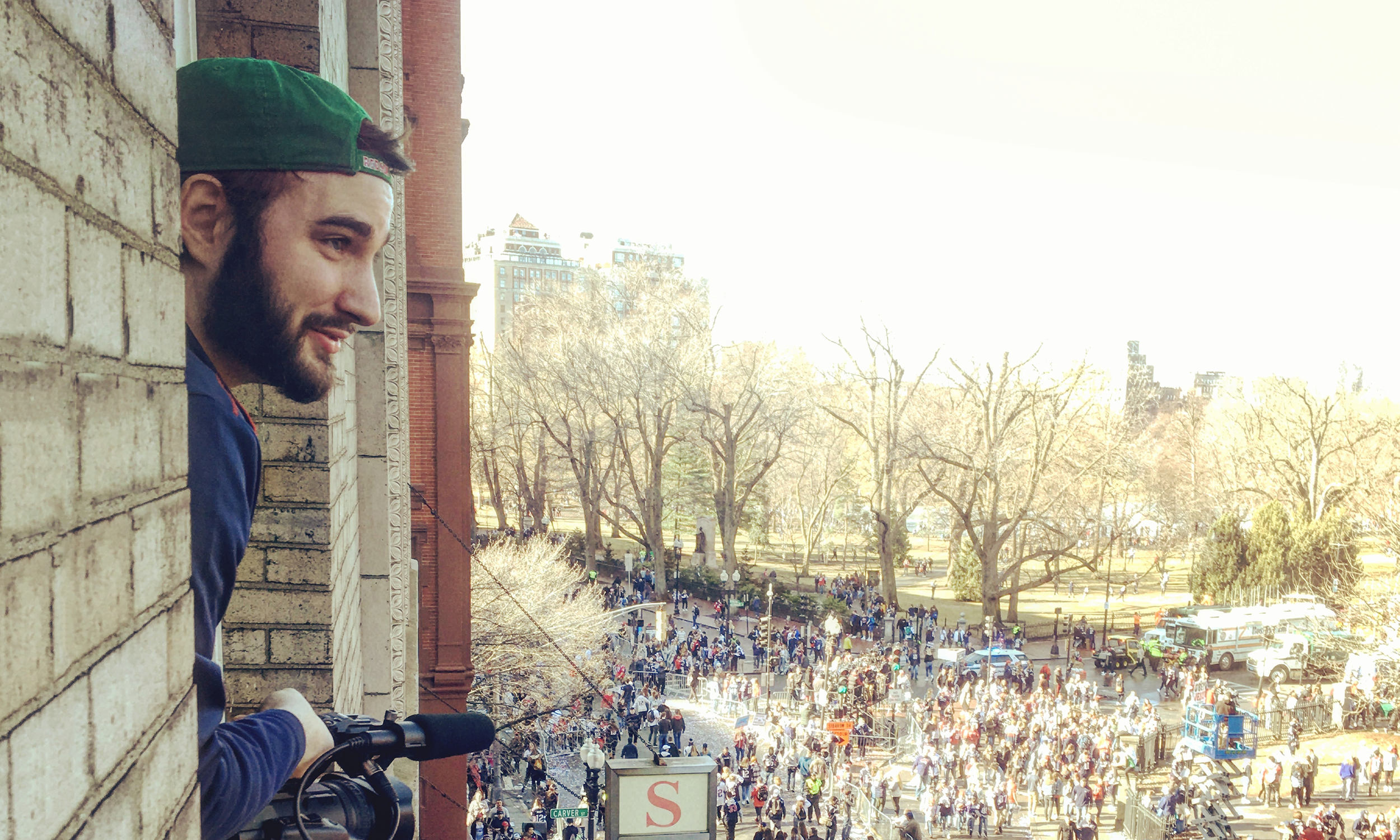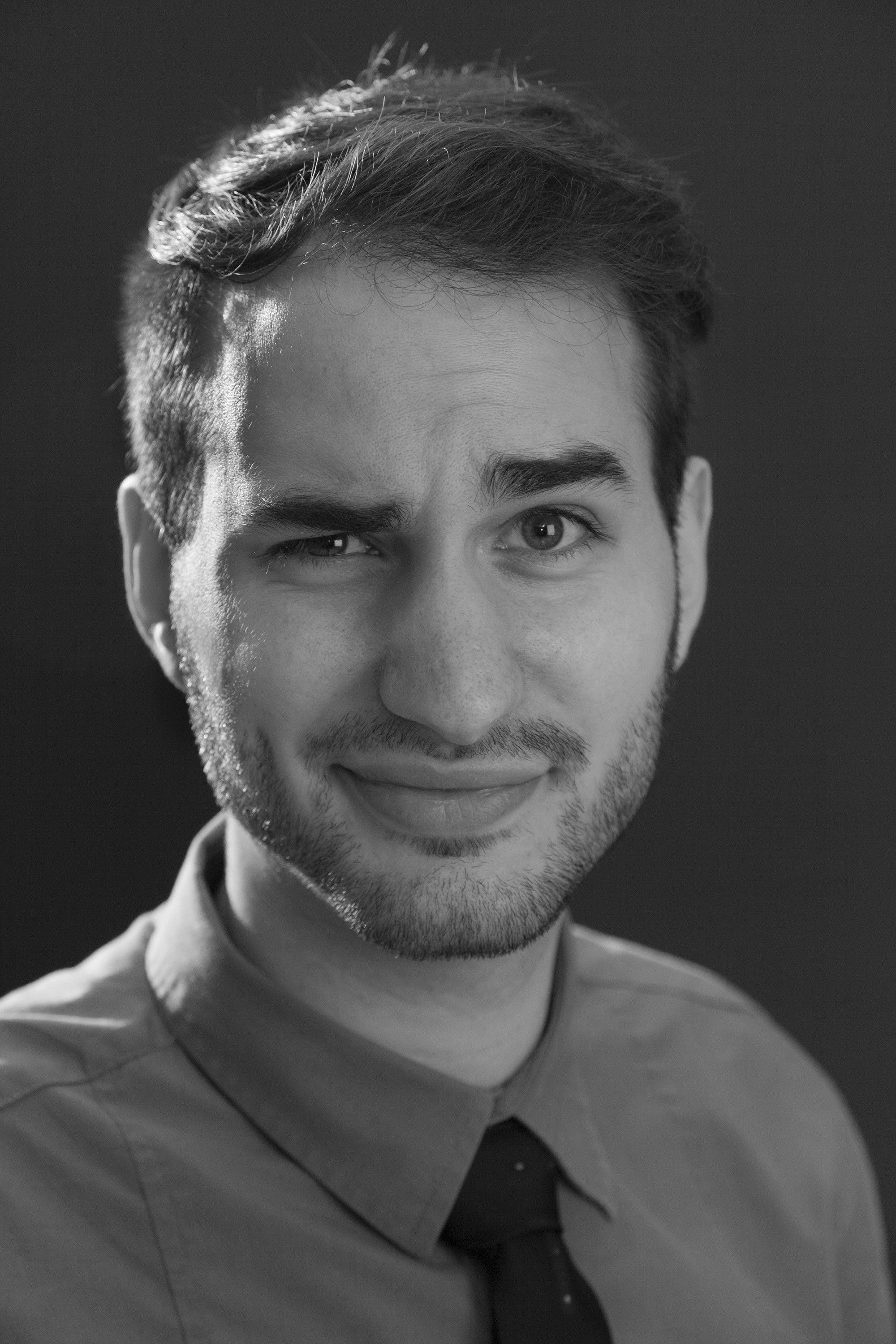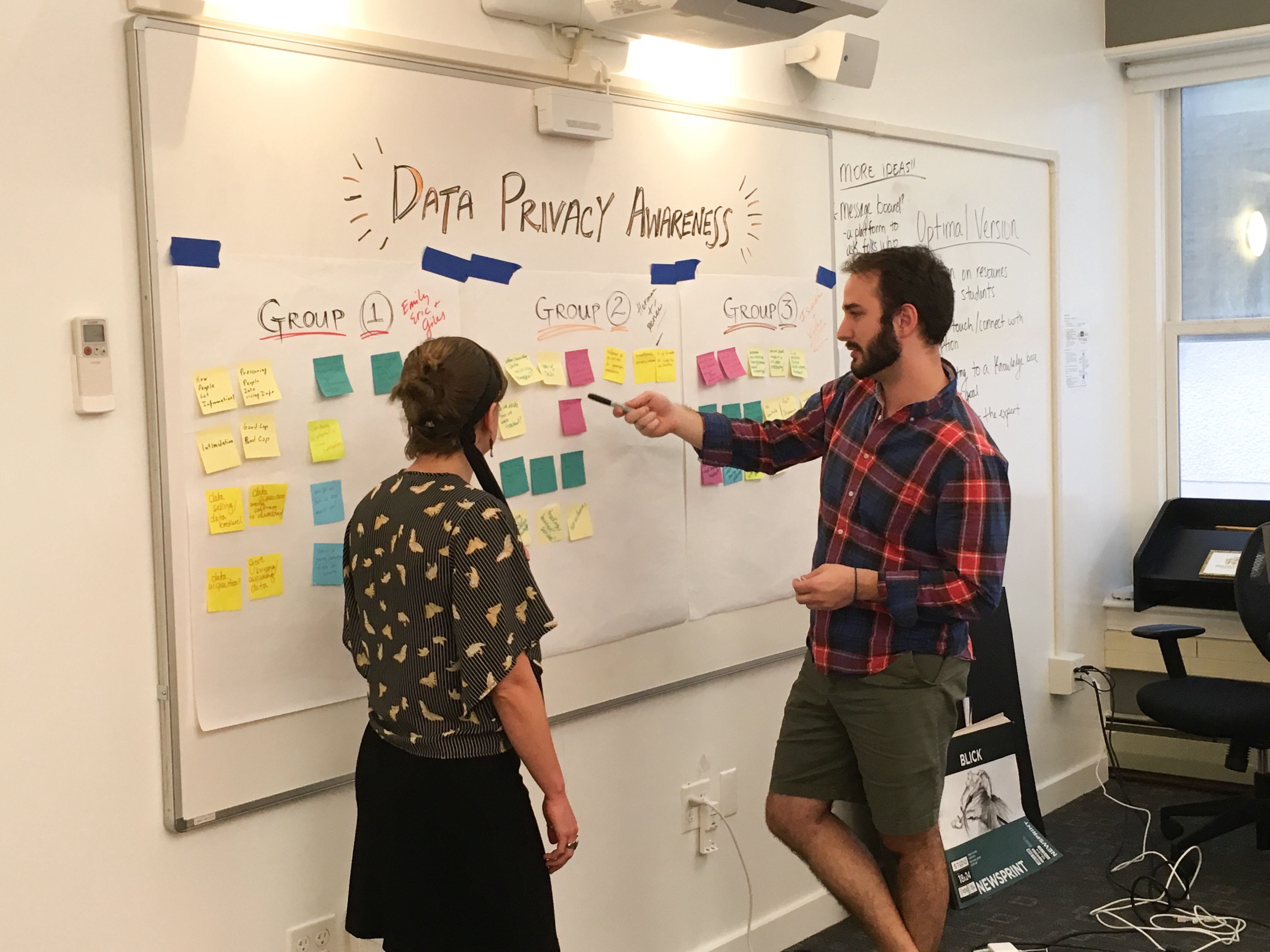Student Spotlight: Herman Servatius on Civic Filmmaking and the Power of Democracy
Monday, February 25, 2019

Herman Servatius is a member of the 2018 cohort of the Civic Media, Art and Practice (CMAP) Program at Emerson College. He has been making movies ever since he was a kid,_ but it’s just recently that he’s begun to officially embrace “filmmaker” as part of his identity. We talked with Herman about what attracted him to movie-making, and what makes film such a rich medium for igniting change._

“I’ve always seen myself as the kind of person who’s never been able to say I’m anything specific,” Servatius says, “but recently, ever since coming to Emerson, I have been telling people that I’m a filmmaker.” Servatius admits that his professional identity is still evolving, but when he describes his vision of activating positive change in our communities, it is through the lens of film: “film can tell stories that other people might not see, and also show people viewpoints or angles on life or story that they may have never considered before; [film is] a very powerful tool for that.”
Servatius grew up in Worcester, Massachusetts and graduated from Worcester State University with his BS in Communication and Environmental Studies in the spring of 2018. Many of his movies come from inspiration in the moment, as well as a personal guiding principle to free himself of perfection and move directly from the kernel of the idea into the act of creation.
“I’ve learned that the sooner you can make something happen, the better,” says Servatius. “When you don’t think something’s going to come out the way you want it to, it can sometimes turn out even better than you wanted it to, just by jumping into it, because you see stuff while you’re doing it that you didn’t realize you wanted in the first place.”
He credits one of his great-aunts for his seize-the-moment mentality: “she would say stuff like ‘when you have an idea, just do it right away — just do it, and then it will be done and you can move on to the next idea.’” “She passed away when I was really young,” Servatius recollects, “but I still remember those words…that’s where the videos on my YouTube channel come from.They’re not great from a technical perspective, but the motivation is that mindset, that if you have an idea, you should just do it.”
Servatius’s “just do it” philosophy applies not only to creation, but also community action. “In the future,” he says, “I envision making videos or films that show people different viewpoints, and that show people that they can get involved in whatever they want to get involved with, at whatever level they can…I think that the more people that are involved in government and democracy, the better it will be, and the more diverse and fair it will be.”
Servatius wants to use film to empower community members to contribute to their communities in whatever way they can, even at the smallest level. “Everyone has different lives — everyone has families, some people have multiple jobs, or many different commitments that they have to attend to,” but for that reason, “I want to be able to make films that show people that any level of being active in our government, in any way, will promote the idea of democracy.”
> > “Film can tell stories that other people might not see, and also show people viewpoints or angles on life or story that they may have never considered before; [film is] a very powerful tool for that.”
Servatius is focusing on documentary film here at Emerson, but almost all of the films on his YouTube channel are humorous, as well as narrative. “[Humor] probably describes me in a big way,” he says. Servatius uses humor as a vehicle to lighten challenging social issues, and to create entry points for dialogue. “That’s something I want to bring to a lot of the stuff that I produce here,” he says, “I want to be able to add some humor, make it more lighthearted”
When Servatius was 12 or 13, he and his sister Mary made their first film together using an old JVC home video camera. The movie was called Peter the Giant and featured their youngest sibling, Peter; Mary directed and produced. “Mary’s not a filmmaker at all,” remarks Servatius, “I think that was the only video she’s ever made. She shot this video where Peter — who was the shortest in the family — was the tallest person in the family just by using camera angles, and building little props, and making them look smaller, and this really cool manipulation of visuals, and I vividly remember that. That pushed me onto the idea of making films.”
What ultimately propelled Servatius into movie-making as a medium was a film by Giuseppe Tornatore, The Legend of 1900. “It’s a really beautiful movie that sort of transitioned my focus into filmmaking that tells stories that you wouldn’t normally see,” says Servatius. “The whole concept of the movie is this guy who’s always lived his entire life on a ship and he’s never set foot on land…he’s never seen the outside world, and he likes it that way.
“What I loved about the movie is that in a very confined space, they tell so much. It’s an ocean liner that goes between New York City and London, and so over the course of this guy’s life you see different eras, different classes, how people are treated, you see the world wars — so in a very confined space, the filmmakers were able to show many many different stories.”
The nature of those stories, not just their multiplicity, resonated with him: “and a lot of them are untold stories, like immigrant stories on that ship.” Servatius believes that showing people different and unexpected viewpoints through film has the capacity shift perspectives for the better. “Just the act of telling a story from an alternate angle, if the viewer is willing to watch it, can open up their eyes.”
Servatius believes deeply in the power of democracy. Moreover, Servatius believes firmly that film and video can support democratic ideals, by giving people access to information in a concise, accessible way. “In video, you can condense a lot of information into a small amount of time, and you can also tell people what they need to know without them having to read a 20-page research paper,” he says. Servatius uses the example of ballot questions in the voting booth to make this point; he contends that an unbiased video with facts from a trusted source can give people the information that they need to make an informed decision about an issue, even if they may not have the time to devote to extensive research.

Servatius is excited to put his skills and aspirations to work as he embarks on his thesis project in partnership with iCivics, an online educational platform that aims to engage young people in meaningful civic learning. “I chose [iCivics] because I really like their mission statement. I like the idea that they want to create an active voice about these subjects outside of an academic setting, which I think is really important for people, especially young people.”
Servatius says that iCivics “really speak[s] to what I was talking about — getting people involved in government, involved in their community, or any kind of civic engagement, and it seems so far that they are trying to do it in a way that allows these children to make their own decisions.”
As part of his thesis work, Servatius will be examining civic deserts — rural areas that don’t have access to civic engagement opportunities — and working towards solutions. “How do we identify those places?” he asks, “how do we work with those places?” For his work with these communities, it’s all about creating access, Servatius says. “It’s about empowering youth to understand that their voice can be and should be heard.”
You can follow Herman on Instagram and Twitter, and or follow him on his YouTube channel.
Our Civic Media: Art and Practice MA program has a brand new name: Media Design! Learn more about the future of the program, or apply today (priority application deadline is March 1).